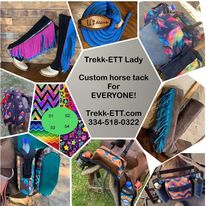In a perfect world, our horses would always be well hydrated. Keeping your horse hydrated is an important part of keeping your horse healthy at home and on the trail.
Traveling with horses can start them down the trail to dehydration. Many horses don’t drink or don’t drink enough while they are on the trailer. This can start an unfortunate chain of events, but with some proactive planning on your part, this can be avoided. The first step is to have your horse hydrated before you leave home. Start thinking about hydration several days before you hit the road.
Electrolytes
Start your horse on electrolytes two days before you leave. Try adding them to their feed. To a large degree, electrolytes include sodium, potassium and chloride. They also include calcium, phosphorus, and magnesium. There are many different types of electrolytes. Speak with your vet if you have questions about the best choice for your horse.
What do electrolytes do?
Electrolytes control nerve conduction and muscle contraction and regulate chemical reactions and provide structural components to the body. They impact muscle function, energy levels, heart activity, blood pressure and the pH balance.
Water: Bring water from home in case your horse isn’t thrilled with the taste of the water in camp. Some people add flavor to the water to mask the difference in the taste of the water. One product I use regularly is Horse Quencher. It comes in many flavors. Chief likes the apple oat flavor best. Be sure to offer plain water besides the flavored water. That way they can pick what they like best.
Extra insurance for hydration:
- The evening before your leave, consider feeding moist dehydrated hay – Purina Mills® makes a great product called Hydration Hay Block (HHB). Be sure to add plenty of water and let the hay soak up before you offer it to your horse. You don’t want him choking – (dry HHB would be like eating a PB&J on dry bread with nothing to wash it down) Consider offering another serving of moist hay in the morning before you leave.
- On longer trailer rides – or in very hot conditions – consider hanging a bucket of HHB in the trailer for your horse to enjoy. At rest stops, you can add a little water to the bucket to keep liquid available for your horse throughout the trip. It can get a little messy, but won’t slosh around as much as plain water.
Other useful bits of information:
- Be extra careful to keep you horse hydrated during changes in seasons – sometimes horses drink less in cold weather and can become dehydrated so hydration is worth watching year round.
- Horses can become dehydrated during hard work – All riders should understand effective hydration – Interesting fact from an article written by Ken Marcella, DVM he stated: “Research has shown that during a 50-mile endurance ride in ambient temperature the average horse will exert enough muscular energy and produce enough heat to melt a 150-pound block of ice and then bring it to a boil”. You may or may not be riding a 50 mile endurance ride but horses will still generate a lot of heat during trail rides even at slower speeds.
How to tell is your horse is hydrated? - Skin pinch test, Capillary Refill Test, Watching for EDPP
By Lindy Griffith and Carol Thompson of SEDRA










